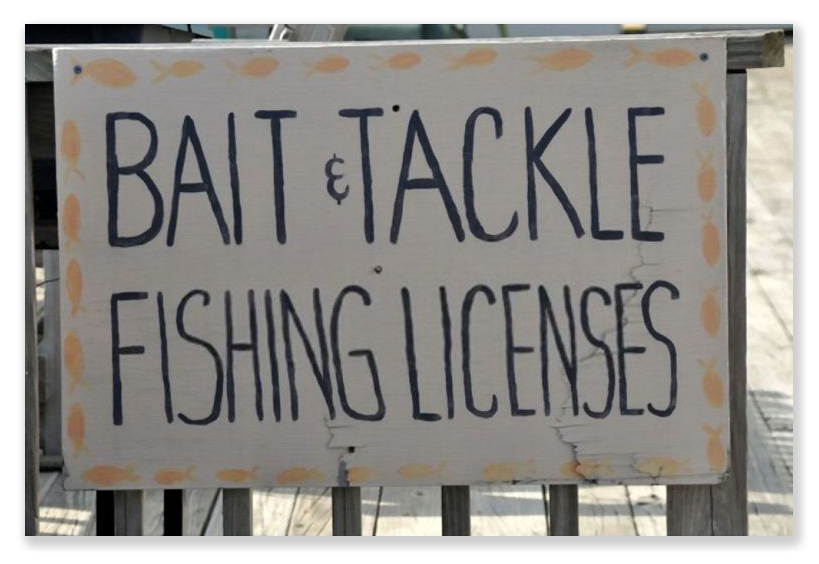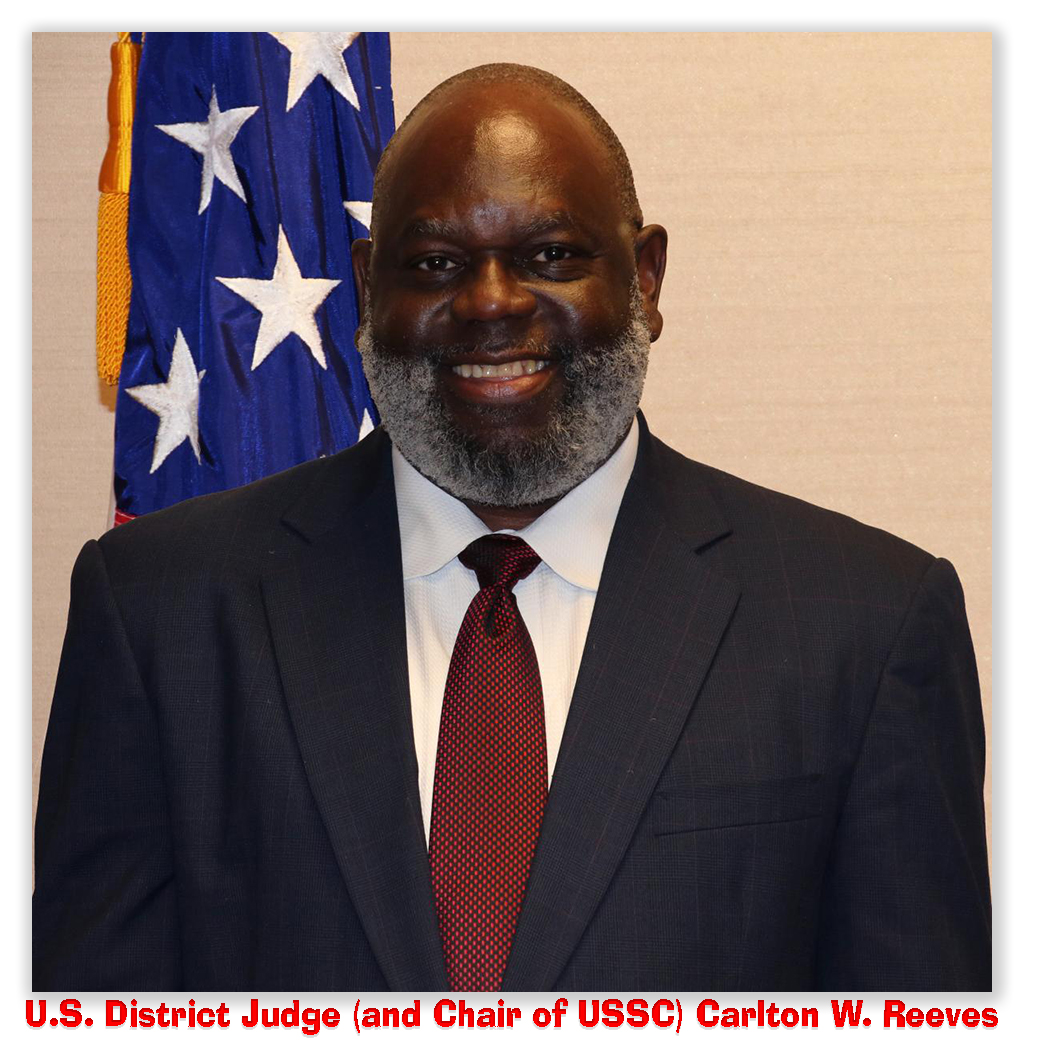We post news and comment on federal criminal justice issues, focused primarily on trial and post-conviction matters, legislative initiatives, and sentencing issues.

DANGER IS MY BUSINESS
 The 6th Circuit handed down a rather inverted but consequential decision last Friday, holding that 18 USC § 922(g)(1) – the statute that prohibits people convicted of a felony from possessing guns or ammo – was consistent with the 2nd Amendment as applied to Erick Williams, a convicted felon with a colorful and rather high-octane rap sheet.
The 6th Circuit handed down a rather inverted but consequential decision last Friday, holding that 18 USC § 922(g)(1) – the statute that prohibits people convicted of a felony from possessing guns or ammo – was consistent with the 2nd Amendment as applied to Erick Williams, a convicted felon with a colorful and rather high-octane rap sheet.
A quick word about “as applied.”
In constitutional law, a facial challenge is a challenge to a statute in which a plaintiff argues that the law is always unconstitutional no matter how it is employed. A law against criticizing the government would always violate the 1st Amendment, whether used against a Marxist firebrand on a soapbox or that nice 80-year-old lady next door tending her gladiolas who complains that Social Security should do better in sending her checks.
Facial challenges are generally hard to win because, despite Congress’s institutional incompetence, facially unconstitutional statutes rarely make it through the legislative process.
In an “as applied” challenge, on the other hand, a plaintiff argues that a statute is unconstitutional not in every sense but rather only when applied in limited cases. The claim in Batson v. Kentucky, where the prosecutor used peremptory challenges to exclude jurors on the basis of race, did not find that peremptory strikes to eliminate jurors from the pool were unconstitutional in all cases, but were unconstitutional when used to strike jurors because of their race.
Back to the live action: Erick, who had previously been convicted of armed robbery and other offenses but who had served his time, was caught in a traffic stop with a handgun. Convicted of being a felon In possession, he appealed on the ground that § 922(g)(1) was facially unconstitutional in the wake of NY State Rifle & Pistol Association v. Bruen.
Applying last June’s US v Rahimi decision (in which the Supreme Court ruled that § 922(g)(8), which denied guns to people subject to domestic protection orders), the Circuit ruled that § 922(g)(1) was not unconstitutional as applied to a guy whose “criminal record shows that he’s dangerous.”
 “Through § 922(g)(1), Congress has decided to enact a class-wide disarmament of felons,” the Circuit wrote. “[T]hat statute is constitutional as it applies to dangerous individuals… Consider William’s criminal record. He has two felony counts of aggravated robbery. Robbery is a common-law crime against the person. What’s more, aggravated robbery is robbery… accomplished with a deadly weapon.” Indeed, Williams robbed two people at gunpoint, stealing cash, a watch, and clothing. That offense alone is sufficient to conclude that Williams, if armed, presents a danger to others or the public. But that’s not all. Williams has also been convicted of attempted murder. And he’s already been convicted of possessing a firearm as a felon. In that case, he agreed to stash a pistol that was used to murder a police officer. The government could’ve pointed to any one of those convictions to demonstrate his dangerousness. Thus, Williams may be constitutionally disarmed through a class-based statute like § 922(g)(1).”
“Through § 922(g)(1), Congress has decided to enact a class-wide disarmament of felons,” the Circuit wrote. “[T]hat statute is constitutional as it applies to dangerous individuals… Consider William’s criminal record. He has two felony counts of aggravated robbery. Robbery is a common-law crime against the person. What’s more, aggravated robbery is robbery… accomplished with a deadly weapon.” Indeed, Williams robbed two people at gunpoint, stealing cash, a watch, and clothing. That offense alone is sufficient to conclude that Williams, if armed, presents a danger to others or the public. But that’s not all. Williams has also been convicted of attempted murder. And he’s already been convicted of possessing a firearm as a felon. In that case, he agreed to stash a pistol that was used to murder a police officer. The government could’ve pointed to any one of those convictions to demonstrate his dangerousness. Thus, Williams may be constitutionally disarmed through a class-based statute like § 922(g)(1).”
The 6th had “little trouble concluding that Williams is a dangerous felon” and thus, that “the government may, consistent with the 2nd Amendment, punish him for possessing a firearm. And the government may enact this prohibition through a broad, class-wide ban like § 922(g)(1). His as-applied challenge therefore fails.”
The Circuit was rather expansive in its holding, however, providing a roadmap for other people with prior convictions who may nevertheless retain a constitutional right to firearms. The 6th limited its definition of who might be dangerous to those who had “committed a crime against the body of another human being… including (but not limited to) murder, rape, assault, and robbery, or… a crime that inherently poses a significant threat of danger, including (but not limited to) drug trafficking and burglary. An individual in either of those categories will have a very difficult time, to say the least, of showing he is not dangerous.”
In Range v. Atty General, the 3rd Circuit opened the felon-in-possession door a crack. The 6th Circuit has nudged it a bit more by applying Rahimi’s dangerousness analysis to the “as applied” mix. To be sure, the 6th included some provisos.
First, it said that it did not exclude “crimes that pose no threat of physical danger, like mail fraud, tax fraud, or making false statements” from being dangerous, but rather deferred that for another day.
Second, it explained that district courts need not find a “categorical” match to a specific common-law crime to show that a person is dangerous. Instead, district courts “should make fact-specific dangerousness determinations after taking account of the unique circumstances of the individual, including details of his specific conviction” and should consider a defendant’s entire criminal record — not just the specific felony underlying his § 922(g)(1) prosecution.”
Finally, the Circuit was implicitly critical that Erick had not sought a declaratory judgment that § 922(g)(1) was unconstitutional as applied to him before being arrested, holding that “Williams availed himself of his constitutionally required opportunity to show that he is not dangerous – albeit after he violated the law, not before.” Whether a movant’s timing – attacking § 922(g)(1) before an arrest rather than as a defense after an arrest – will matter in the constitutional calculus (and it should not), remains to be seen.
 Ohio State University law professor Doug Berman, writing in his Sentencing Law and Policy blog, said last Sunday, “By my read, this opinion means that any and every person within the Sixth Circuit criminal charged with illegal firearm possession under 922(g)(1) — and perhaps other federal and state gun control provisions? — can now seek dismissal of that charge by making ‘an individualized showing that he himself is not actually dangerous.’ In addition, I wonder if this Williams opinion might now provide a means for the millions of persons with non-violent felony convictions in the Sixth Circuit to seek a declaratory judgment that they are ‘not actually dangerous’ and thus have a Second Amendment right to possess (and purchase) firearms like all their fellow citizens.”
Ohio State University law professor Doug Berman, writing in his Sentencing Law and Policy blog, said last Sunday, “By my read, this opinion means that any and every person within the Sixth Circuit criminal charged with illegal firearm possession under 922(g)(1) — and perhaps other federal and state gun control provisions? — can now seek dismissal of that charge by making ‘an individualized showing that he himself is not actually dangerous.’ In addition, I wonder if this Williams opinion might now provide a means for the millions of persons with non-violent felony convictions in the Sixth Circuit to seek a declaratory judgment that they are ‘not actually dangerous’ and thus have a Second Amendment right to possess (and purchase) firearms like all their fellow citizens.”
United States v. Williams, Case No. 23-6115, 2024 U.S. App. LEXIS 21375 (6th Cir. Aug. 23, 2024)
Sentencing Law and Policy, Sixth Circuit panel rules federal prohibition of felon gun possession is “constitutional on its face and as applied to dangerous people” (Aug 25, 2024)
– Thomas L. Root




















